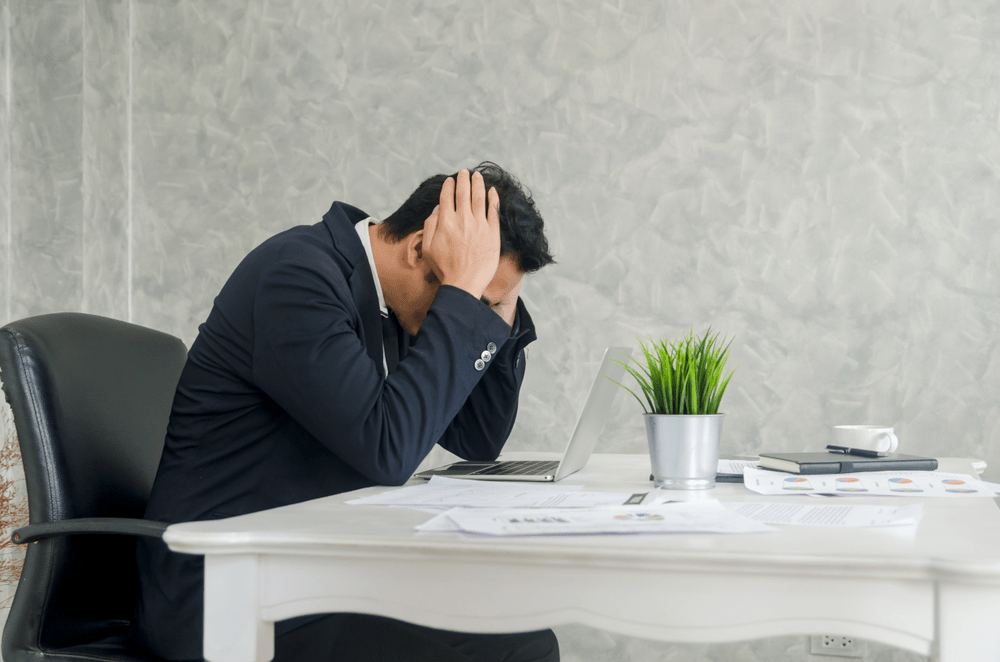My heart is beating fast, and I am panicking.
During the last working hours of the day, I look at my agenda: One week left for the big event, the biggest event in my career, one which hundreds of international and local journalists, business owners, and senior managers in the company where I work will attend. One week left to celebrate the hard work and the long months spent without taking any day off. One week left to get the promotion, the promotion that I thought would be impossible to get during my first year at this company.
Only one week is left…
I look at the agenda, and all of a sudden, the page becomes blurry. I no longer see the words and the lines. My head spins. I have a strange migraine. My heart beats race. I’m having difficulty breathing. I can feel my heart pounding in my chest. I panic. My breath shortens. I sweat. Everything becomes blurry. “What is happening?” I ask myself as I freak out. I answer myself with a scary thought: “I am dying, I am dying now”.
I didn’t actually die, but what I experienced in those moments, and for the first time in my life, was a panic or stress attack caused by burnout, a term that, at that time, was as strange to me as the state I experienced. I thought that I was suffering from some kind of biological problem because after the episode, I also suffered from pain throughout my body, stomach ache, continuous migraine, sudden weight gain, and a depression I never experienced before.
“No, dear”, the psychotherapist told me with a motherly tender note. “What you are suffering from starts and ends in your mind. It is time for you to make some radical changes and consider a different routine”.
Studies have shown that one out of four employees across the world suffer from burnout syndrome, which has led to the formation of specialized committees in countries like France, for example, that force companies to hire a psychotherapist who their employees can consult in case they experience a similar state.
Burnout syndrome is a state of physical, mental and emotional exhaustion resulting from continuous and cumulative stress, and the inability to properly relax.
What are the signs of burnout?
Exhaustion:
Feeling constantly tired is the revealing indicator that stress has become unbearable. The exhaustion can be physical and emotional and feel as if you drained all your energy.
Lack of enthusiasm:
When waking up in the morning and getting out of bed becomes so very difficult, and when you are no longer enthusiastic about performing at work, you have reached the burnout phase.
Feeling down and having negative feelings:
You feel that what you are doing is worthless. Your ideas are confused, and you are unable to make good decisions. You’re constantly pessimist.
Cognitive problems:
The continuous stress affects your attention and ability to concentrate. When you’re under pressure, you start to see only the negative things, which makes you easily forget many, even the simplest, things.
A decrease in productivity and poor communication:
When you spend hours finishing a task that used to take you fifteen minutes to complete in the past. Or when you constantly create problems with your colleagues or stop communicating with colleagues and family members. You are physically present, but your mind is absent.
Neglecting yourself and your appearance:
You used to go to work well dressed and groomed, while these days you’re neglecting yourself and not finding any motivation to look your best.
Health problems:
In an advanced state of burnout, you may suffer from health problems such as insomnia, high cholesterol, diabetes, cardiovascular problems, and low immunity which may cause you to get sick more often than usual. High anxiety and stress levels may lead you to take drugs (whether prescription or illegal) to help you relax, as well as excessive alcohol use and cigarette smoking.
How to prevent burnout?
Take regular breaks from work and practice activities you enjoy, including physical exercise (think of dancing, yoga, walking, etc.).
Find a therapist who can provide the professional psychological support you need and may share a perspective that differs from those shared by your family members and friends.
Consult with a doctor to treat any health problems that you may suffer from as a result of the burnout.
Get enough sleep, wisely manage time spent working and on your home life, and don’t bring work home.
Discuss work-related tensions with your manager. In case this does not help resolve work stressors, consider changing jobs.
Burnout creeps up on you over time. Listen to your mind and body for any warning signs. Make an honest assessment of the amount of stress in your daily life and find ways to reduce it. A few small changes now will definitely pay off as burnout isn’t cured in a few days but takes lifestyle changes and time to get over.

